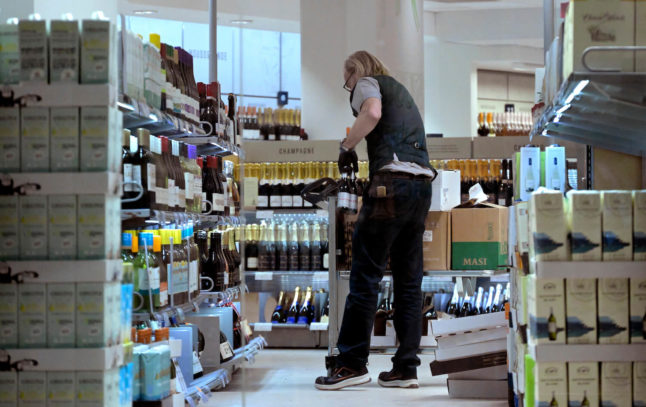Paper, plastic, glass and metal rubbish
Some housing associations (bostadsrättsförening) have facilities for recycling these materials within the association; you should be able to find out from your landlord or association board (styrelse).
If not, you shouldn’t be too far from a local recycling station (återvinningsstation) where you can dispose of all these items. For larger amounts of waste, for example if you also have old furniture and appliances to recycle or lots of packing materials from a house move, head to the larger recycling centre (återvinningscentral), usually located on the outskirts of towns and cities, where it’s free for private individuals to drop off rubbish for recycling. At these larger centres, you can also recycle things like household appliances, old furniture and more.
Bottles and cans
When you buy drinks in a bottle or can in Sweden, you usually pay a deposit (pant) which you get back when you recycle them. Most supermarkets have a pantstation where you can return these items and either get the money back in the form of a voucher to spend in the shop or a donation to charity. If you have large amounts of this kind of waste to recycle, you usually need to go to a recycling centre where you can get rid of large quantities efficiently in specially adapted machines.
Food waste
Composting is a kind of recycling, and it’s often possible in Sweden. If you live in a house, it is relatively simple to compost food waste (although you should report this to your local municipality and check on any regulations you need to follow), and many housing associations compost waste which is often collected by the local municipality and converted to fuel for public transport.
Clothes and textiles
At many recycling stations, there is also a bin for clothes donations, but these should typically be in good enough condition for re-use.
When it comes to older fabrics, these can be recycled at recycling centres, but also in other ways. H&M Group stores, including for example Monki and &Other Stories as well as H&M, will accept bags of used fabrics for recycling – it doesn’t cost anything and you’ll even get a voucher for use in store. And many animal shelters are on the lookout for old bedding and towels. Try searching djurhem, hundhem or katthem to see if there are shelters in your area looking for donations.
Environmentally dangerous rubbish
Some common household items like lightbulbs, paint, and cleaning fluids are hazardous to throw away with your household rubbish, so need to be disposed of carefully. The same goes for many cosmetics like nail varnish and aerosols, as well as electrical rubbish. You have a few options.
The first option is to take it to the recycling centre, where you can usually dispose of all the above items, including those of a large size.
Smaller stations for hazardous waste (miljöstationer) can often be found at petrol stations and sometimes supermarkets, and there are mobile versions (mobila miljöstationer, trucks which travel around the city for collection) in at least Sweden’s three major city regions of Stockholm, Gothenburg or Malmö. At the latter, you can often dispose of electric gadgets up to around the size of a standard microwave.
Stockholm has six other locations around the city where you can dispose of hazardous waste or small electrical products (like an old mobile phone or electric toothbrush) at a “Samlaren” or secure waste container (see the list here). In Gothenburg there are even more Samlaren locations (see the map here), and Skåne too (see the map here).
Batteries are also hazardous waste, and there’s usually a battery disposal bin at your local recycling bins, and in some larger shops, where you can throw them away safely without needing to go to a miljöstation.



 Please whitelist us to continue reading.
Please whitelist us to continue reading.
Member comments